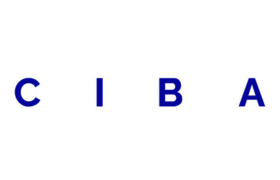- Industry Pulse reports on the Banking and the Tourism sector issued
- Third report on the Real Estate Sector to follow shortly
Banking Industry Pulse
The banking sector is one of the few sectors of the economy that attracted highly effective intervention by the Regulators and the Government through sector-specific measures. As the liaison between fiscal and monetary policy, the banks constitute the means of transmission of funds to the real economy, thus the fast and effective economic response is undoubtedly very important.
EY conducted the first survey with regards to the potential impact of COVID-19 on the Cypriot Banking Sector. Key executives from the major Cypriot banks have been invited to provide their views, expectations and sentiment in relation to the impact of COVID-19 on various aspects of the banking operations and key financial metrics.
The key outcomes of the survey were as follows:
- New defaults and re-defaults are expected to experience a modest increase in 2020, followed by a bigger uplift in 2021. It is anticipated that new defaults will mainly arise from wholesale and retail trading, hospitality and Real Estate construction portfolios. Loan losses are anticipated to increase, following a similar trend to new defaults in terms of timing, however, the provisioning levels will be driven by the macro projections and the level of price adjustment in the real estate market.
- Interest income will not be materially impacted in 2020 despite the moratorium. Low base rates driven at a European level as well as low margins to be driven by the potential application of the Government guarantee scheme are expected to impact interest income. However, fee and commission income is to be impacted in 2020 due to low economic activity. In 2021, interest income is likely to be impacted due to the expected wave of new defaults.
- The view of Bank executives on the application of the moratorium on loan payments and the fiscal stimulus package was positive overall. However, concerns are raised around the final clauses of the guarantee scheme and whether it will allow the quick and effective transmission of funds to the real economy.
Tourism Industry Pulse
Similarly, the Tourism Industry Pulse Report captures the current sentiment from key experts and executives from major Cypriot hotels and hotel chains with regards to the potential impact of COVID-19 on the Cypriot Tourism sector.
Amongst the main findings of the survey were:
- The COVID-19 crisis introduces significant challenges for the sector; including cancellation of bookings, material revenue reductions, increased costs and liquidity pressures. Hoteliers are currently forecasting a more than 50% reduction on their y-o-y revenues coupled with operating losses.
- In response, they have suspended their operations, adjusted their working capital management and are considering cost-cutting exercises.
- Most predictions place a recovery to 2019 performance beyond 2022.
- Market players are also predicting a change in customer behaviour in the post-COVID era; e.g. less crowded facilities and closer-to-home destinations.
Stelios Demetriou, Partner and Head of Transaction Advisory Services of EY Cyprus, commented: “The pandemic has caused global economic turmoil and Cyprus is once again facing an immense challenge that is exacerbated by the global interconnectedness of its economy. Our reports aim to provide sector-specific perspective with regards to the impact of COVID-19, in conjunction with fiscal and monetary policy response. They can become a valuable tool to all stakeholders, from corporate executives, financial institutions as well as the Government. By better understanding the current landscape and having input from industry experts, our team is in position to support our clients in getting through this crisis. We strongly believe that the road to recovery will be an uphill one.”
To read the available reports please visit: Banking Industry Pulse ReportTourism Industry Pulse Report













